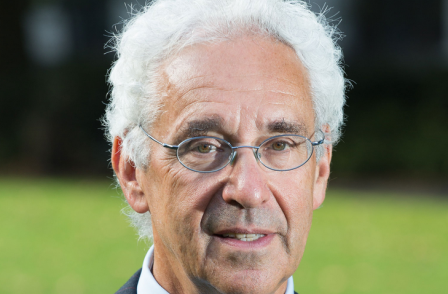
Chairman of press regulator IPSO Sir Alan Moses has told press owners to scrap rules which allow them to “obfuscate and resist” an investigation.
Moses was giving evidence yesterday to the House of Lords Communications Committee.
The Independent Press Standards Organisation replaced the Press Complaints Committee in September.
One of its key new powers is the ability to launch investigations into serious wrongdoing at newspapers and issue fines of up to £1m.
Moses told Parliament that he agreed IPSO’s rules give publishers too many opportunities to object to complaints in the hope of avoiding fines.
He said: “We have gone to them with our proposals that require a large amount of red pencil putting through a large amount of these rules, getting rid – as we propose – of the eight or nine opportunities to obfuscate and resist the investigation," said Sir Alan.
"Many of the rules – this awful collection of rules and regulations – are opaque, sometimes self-contradictory, difficult to understand and sometimes difficult to find.
"One of our main tasks at the outset has been to identify those rules and regulations which we say need amending or cutting out in order to demonstrate an effective and robust simplicity and directness.
"I believe that that is the way we will demonstrate our independence. Only time will tell whether we can successfully persuade and convince others.
"The moment anybody else tries to tries to control us by any means, whether by opaque rules or by difficulties in any other way, that seems to me to be heavily damaging to independence."
Moses said that IPSO would be compliant with the recommendations in the 2011 Leveson report by the summer.
And he said that IPSO planned to work together with rival regulator Impress, either as one body or two separate organisations. He said their aims were “identical”.
He said there was no chance of IPSO applying for recognition under the Royal Charter on press regulation, because the 69 publishers who have signed up to IPSO do not want to be part of an organisation accredited by it.
This means that publishers in IPSO are open to the threat of punitive costs and damages in libel and privacy actions.
But Moses said he thought it would be “very difficult” to envisage a case where such penalties were imposed.
The committee was told that a budget of £2.4m had been agreed to cover IPSO’s operations this year (around £500,000 more than the PCC) with a further £500,000 spent on setting up costs.
So far Guardian News and Media, The Independent/Standard and the Financial Times have all declined to sign up to IPSO. These publishers instead handle all complaints themselves.
Guardian editor-in-chief Alan Rusbridger said the Guardian and Observer would sign up to IPSO if Sir Alan was able to show that it was truly independent from the industry in terms of its funding, appointments, rules and regulations.
Email pged@pressgazette.co.uk to point out mistakes, provide story tips or send in a letter for publication on our "Letters Page" blog

